by David Hazony
Hat tip: Dr. Jean-Charles Bensoussan
What the recent revelations about the Iran deal tell us about America’s new guiding philosophy in the world.
I. Spin is the Opposite of Policy
Whoever said that truth always wins out hasn’t spent much time in Washington. In this town of majestic monuments and post-adolescent ambition-addicts, where the campaign never ends and only impotence is considered unseemly, truth is a butterfly in a mist of acid rain. It’s hard to catch, harder still to save.
Successful leaders have always been adept at deception, of course. To say politicians are liars is to state a truism and to ignore the unpleasant fact that sometimes one must deceive in order to achieve.But in the last couple of years, something seems different, especially relating to the Obama administration’s signature policy initiative of its second term: The nuclear deal with Iran.
Two recent devastating profiles—one of President Barack Obama by Jeffrey Goldberg in The Atlantic and the other of Obama’s communications chief Ben Rhodes by David Samuels in The New York Times Magazine—have revealed a kaleidoscope of mendacity so sophisticated, creative, consuming, and substantively boundless as to give rise to a sense that something essential has changed in the relationship between truth and falsehood, between the actual policies of an administration and its efforts to sell them.
At a deep level, spin displaced policy. Not only were key promises in the deal’s favor knowingly fabricated for the purpose of persuasion; not only were the scope and ambitions of the deal, the timeline of when talks began, the internal dynamics of the regime in Iran, and the priorities driving the American side during each stage willfully distorted; not only were journalists and experts whose entire reputations should have been at stake enlisted in the government’s sorcery; not only were official records doctored; but the process of decision-making within the administration appears to have been short-circuited as well.
Members of the cabinet had little if any input. Indeed, in some cases their presence was entirely intended to misdirect the public’s understanding of the worldview behind the policy. Implementation of the president’s intentions was delegated, instead, to a staffer with the portentous title of Deputy National Security Advisor for Strategic Communications.
The “deal” with Iran that was concluded in July 2015 was not even exactly a deal. The document, called the Joint Comprehensive Plan of Action, was never actually signed, even as the administration continued to insist that the deal was “not based on trust.” The version approved by the Iranian parliament, and the provisions described by Iran’s leaders, were different from those submitted to Congress and the American people. We were assured that Congress would be given a say, but the nature of the say included a truncated process, suppression of side deals, and a vote in which two-thirds of members were required to override a veto and stop the implementation, which is very different from the two-thirds of the Senate required to approve treaties.
To top it all off, in key parts of the document—where the administration’s long-promised “snap-back sanctions” purportedly appeared—the text actually included the Iranians’ express rejection of the concept, declaring that the entire deal would be off if sanctions were restored. Meaning “snap-back sanctions” were never agreed to. Meaning a central plank of the agreement wasn’t really part of the deal at all.
Taken together, this amounted to a grand deception, a Big Lie of astonishing proportions and complexity aimed at deceiving the public about both the intentions and dynamics of the foremost foreign policy initiative of the Obama presidency.
And yet, all the focus on the Big Lie that has emerged since the publication of these two essays risks obscuring something arguably more important: the decision to make the deal in the first place. What we ended up with, we have only now begun to understand, amounts to a massive shift in thinking about America’s role in the world, the ultimate aim of which was hidden from public view, as was the core philosophy that motivated it.
This too was kept secret, though nothing about the Iran deal makes sense without it.
II. Getting Out
Because the true purpose of the Iran deal was never articulated, and because the deal’s logic seemed so difficult to swallow (flooding a serial violator of nuclear treaties and international humanitarian law with money, power and legitimacy in exchange for a promise to hold off its nuclear work for a few years is a self-evidently bad idea), the battle against the deal included a fair amount of speculation.Some argued that a general entente with Iran was the goal, a historical transformation of America’s greatest enemy into a kind of partner—and that the President had made up his mind about it very early in the administration, even as early as his first year in office. They pointed to his famous 2009 Cairo University speech, when he signaled to the Muslim world that he was ready to offer “A New Beginning,” as the speech was titled. “Rather than remain trapped in the past, I’ve made it clear to Iran’s leaders and people that my country is prepared to move forward,” he said, adding that “any nation—including Iran—should have the right to access peaceful nuclear power if it complies with its responsibilities under the nuclear Non-Proliferation Treaty.” They also pointed to the President’s bizarre failure to support, even symbolically, the 2009 Green Revolution, when tens of thousands of Iranians took to the streets in the first real moment of hope for overthrowing the most dangerous totalitarian, anti-American regime on earth.
According to this line of reasoning, the administration was determined to withdraw from the Middle East, and the best way to do that was to break its decades-long commitments to its internally conflicted and inconsistent Sunni allies, as well as to Israel, all of whom saw Iranian expansionism as the greatest threat to their security. To achieve this, Obama would do the opposite of what they wanted: Effectively hand over power and responsibility to Tehran. This was expressed in the gradual ceding of power in Iraq to Iran-backed Shiite militias (a process documented by Michael Pregent in the Tower), as well as turning a blind eye to Hezbollah’s increasing dominance of southern Lebanon and the deployment of Iranian troops and proxies in Syria and Yemen. Eventually, it would also mean giving up on the idea of removing Iran’s man in Syria, Bashar Assad, from power.
Many revelations support this view, such as the secret letters Obama sent to Iranian Supreme Leader Ali Khamenei, telling him that the deal could turn Iran into (as he later put it) a “very successful regional power.”
The point of the Iran deal, it emerges, was to act as the centerpiece of a fundamental change in the architecture of the Middle East. “It’s the center of the arc,” Rhodes tells Samuels. “It’s the possibility of improved relations with adversaries. It’s nonproliferation. So all these threads that the president’s been spinning…for almost a decade, they kind of all converged around Iran.” A similar revelation comes to Samuels from another close adviser: “When I asked Jon Favreau, Obama’s lead speechwriter in the 2008 campaign, and a close friend of Rhodes, whether he or Rhodes or the president had ever thought of their individual speeches and policymaking as part of some larger restructuring of the American narrative, he replied, ‘We saw that as our entire job.’”
Restructuring the narrative—but how? Perhaps the most definitive articulation of what was wrong with the old narrative came from Rhodes in his conversation with Goldberg:
The central argument is that by keeping America from immersing itself in the crises of the Middle East, the foreign-policy establishment believes that the president is precipitating our decline. But the president himself takes the opposite view, which is that overextension in the Middle East will ultimately harm our economy, harm our ability to look for other opportunities and to deal with other challenges, and, most important, endanger the lives of American service members for reasons that are not in the direct American national-security interest.
This is, of course, a radically different justification for the deal than anything having to do with the actual Middle East or the people who live there. It is about changing not Iran’s behavior but America’s, preventing its “decline” by changing the story that Americans tell themselves about their purpose in the region and the world. For decades, America kept getting sucked into conflicts in the region, of which the 2003 Iraq War was only the most glaring, disastrous example. (Goldberg: “I told Obama that the Middle East is to his presidency what the Mob is to Corleone, and I started to quote the Al Pacino line: ‘Just when I thought I was out—’ ‘It pulls you back in,’ Obama said, completing the thought.”) This was happening, apparently, because of a web of extremely powerful commitments and narratives that made up the “Washington playbook,” beliefs that were supported by heavy funding from Arab states and pro-Israel Americans. These interests were responsible for a massive strategic investment in the region, and put America in a permanent position of having to take military action.The only way to free America from the Middle East was to shatter these narratives. This meant rewriting key elements of America’s relationships in the region. No longer could America be relied on to prop up regimes like Hosni Mubarak’s in Egypt, for instance. For the Gulf states, entente with Iran and energy independence would mean shifting the balance of power, weakening them while creating a much stronger antagonist on the other side of the Persian Gulf. “The competition between the Saudis and the Iranians—which has helped to feed proxy wars and chaos in Syria and Iraq and Yemen—requires us to say to our friends as well as to the Iranians that they need to find an effective way to share the neighborhood and institute some sort of cold peace,” Obama told Goldberg. This, of course, triggered alarm across the Gulf states. “There are currently strong indications,” Jonathan Spyer, a senior fellow at the Interdisciplinary Center in Herzliya, wrote in The Tower in early 2014, “that some Gulf countries, and Saudi Arabia in particular, have concluded that the Americans are indeed abandoning the region, or are fully unreliable at a minimum.”
Breaking the Israel narrative would be trickier, since Israel still enjoys the support of a large majority of Americans. The pro-Israel lobby group AIPAC would need to be hobbled, in part through a string of public defeats, of which the Iran deal was only the most glaring; but also through the creation of an alternative “pro-Israel” lobby, J Street, which re-interpreted support for Israel as acting in opposition to its policies and convincing American Jews, many of whom hadn’t really felt a bond with the Israeli government in decades, that it was reasonable to help Israel by urging the U.S. to put pressure on it. J Street, which claimed to be focused on the Palestinian conflict, oddly threw the weight of its Jewish-aimed resources at supporting the Iran deal (we now know it received significant funding to this end from the administration’s go-to nonprofit, the Ploughshares Fund)—despite the fact that the overwhelming majority of Israelis, including most of their elected leaders, thought the deal was a disaster. The existence of J Street would help shatter the belief that presidents were somehow obligated to follow the dictates of the “Israel Lobby.” Obama was crowned the “first Jewish president” (by none other than Goldberg) in part because of his ability to capitalize on the strong anti-Netanyahu sentiment held by many American Jews on the Left and spin it as a form of Judaism.
In this sense, the public clash between Obama and Netanyahu over the Iran deal proved useful for a president who expressly sought the creation of “daylight” between America and Israel. Netanyahu may have been right to protest, but there can be no question that the White House did little to avoid the clash, initiating a virulent attack against what Secretary of State John Kerry called “massive” growth in settlements (there was nothing of the sort), directing administration officials to boycott Netanyahu’s speech to Congress, and calling him “chickenshit.” At the same time, by maintaining military aid and cooperation with Israel, and by occasionally voicing his commitment to Israel’s security, Obama could still claim to be pro-Israel while in fact empowering its greatest enemy.
All of this, we have come to understand, was not really for the good of Israel or the Middle East, or for bolstering America’s strength or credibility in the region. Rather, it was out of a belief that American disengagement required the unraveling of prior commitments. “By eliminating the fuss about Iran’s nuclear program,” Samuels concludes, “the administration hoped to eliminate a source of structural tension between the two countries, which would create the space for America to disentangle itself from its established system of alliances with countries like Saudi Arabia, Egypt, Israel, and Turkey. With one bold move, the administration would effectively begin the process of a large-scale disengagement from the Middle East.”
III. The Wrong Side of History
Why do this? The old narratives, we were told, had brought us the Iraq War, which didn’t turn out very well. But the failures of Iraq, in and of themselves, do not fully explain the attempt to revolutionize America’s position in the world. What was the new narrative? What, in other words, was the vision for America that would prevail once the old order was broken?What emerges from all the revelations about the President’s mind is a sense that there really is a coherent positive vision—inarticulate, but motivating nonetheless—reflected in a kind of unquenched optimism, an audacious hope he was trying, perhaps vainly, to realize.
It is a dream of a better world. One where reason guides the course of events.
There is so much to hope for. But the world keeps disappointing. Obama never gave a speech where he laid it all out explicitly (had he done so, Leon Panetta tells Samuels, “they’d get the [expletive] kicked out of them”), but we do find many clues in the President’s interviews and speeches. The Middle East is, we learn, locked in “tribalism,” a term that Goldberg presents as evidence of the president’s intellectualism but is in fact a horrible cliché. We also hear, frequently, that the region is riven by “ancient hatreds” between Sunnis and Shiites and Kurds and Alawites and Turks and Jews and God knows what else. The purpose of the 2009 Cairo University speech, he told Goldberg, was to
trigger a discussion, [to] create space for Muslims to address the real problems they are confronting—problems of governance, and the fact that some currents of Islam have not gone through a reformation that would help people adapt their religious doctrines to modernity. My thought was, I would communicate that the U.S. is not standing in the way of this progress, that we would help, in whatever way possible, to advance the goals of a practical, successful Arab agenda that provided a better life for ordinary people.
“Obama believes that history has sides,” concludes Goldberg, “and that America’s adversaries—and some of its putative allies—have situated themselves on the wrong one, a place where tribalism, fundamentalism, sectarianism, and militarism still flourish. What they don’t understand is that history is bending in his direction.”And what is that direction?
The answer might be as simple as this: Obama, it seems, adheres to an ultra-rationalist vision of the sort we have seen in the editorial page of The New York Times, that same simple-minded pseudo-intellectual drivel that got all of us who have actually seen how the world works to wish that our professors back in college really had gotten off campus once in a while: The belief that the central arc of human history is the victory of reason over unreason; that in politics the answers are already there, plain as day, and only those blinded by irrationality can’t see them. According to this view, enlightenment is an unstoppable process, and history moves only in one direction—from dark to light, to progress, to multilateralism, to international institutions and accords and working things out, not on the battlefield but in the conference room. That history, as we have known it for millennia, is heading to a peaceable and rational end.
This worldview, of course, is not new; it’s been circulating the halls of academia for hundreds of years, and, like any political religion, constantly trying to gain power. But by the middle of the 20th century, the infinite hell-vortex of two world wars convinced most normal people that history could go many ways, not all of which were particularly enlightening, and that the West’s ultimate survival required a certain intellectual humility and a heavy investment in learning about the world. The schools of thought that emerged, the different kinds of realists and internationalists, all tried to learn from the failure of rationalism in world affairs. Very few people who still held on to the belief in the Inexorable March of History Towards Reason could be found in actual positions of responsibility.
For utopian rationalists, however, political events are interpreted through a prism that makes getting things right easy. As long as you’re heading the right way, you’ll be okay.
The word “rationalist” is a little confusing. In fact, there are two kinds of rationalists. One kind believes in a dynamic intellectual process of generating ideas, testing them against reality, leading to better understanding. We can call this rationalism, or the scientific method, or just being a smart person. And then there is the other kind: People who believe that the world’s problems will be solved when everyone stops fighting and starts talking, because the answers are obvious once your mind is freed of irrational things like tribe, religion, or the past. The former type has an acute appreciation for the limits of his knowledge and, accordingly, surrounds himself with people who bring a wealth of experience into a constructive conversation, and consider angles and implications, laying the groundwork for a good decision. The latter type, however, despises such discussion, viewing it as an unnecessary, even bureaucratic, constraint on his power. His instinct is to resist the whole process. The answers are obvious, and anyone who pushes back is not just wrong but worthy of ridicule: Ignorant, a “know-nothing” (Rhodes), an advocate for (in Obama’s words) “doing stupid shit.”
This is not very scientific, of course. It is much more like faith—faith in reason, and in its glorified human intermediaries, who provide answers so true as to obviate the process of truth-seeking. The hard work, rather, is in the presentation, the eloquent language, the spin. In finding the right words that’ll help people see it.
Reason, progress, tribalism, ignorance, ancient hatreds, the wrong side of history: Throughout his speeches and interviews on both foreign and domestic policy, the language Obama uses is filled with ultra-rationalist bromides—and red flags to anyone sensitive to their perilousness. They evoke the specter of unenlightened people clinging to crazy attachments and descending into violence. What this image does is make it possible to throw a blanket over the whole Middle East and justify getting the hell out. To remove questions of power, of the motivations of individual leaders and whole regimes, of complexity, of choosing sides in a fight.
They are, in fact, the foreign-policy equivalent of Obama’s 2008 campaign gaffe, when he spoke derisively of Americans who “cling to their guns and their religion”—the two things that symbolize, in his view, every evil in American life: Power and faith
IV. It Must Be Hard to Know Everything
By looking at President Obama as an adherent of this kind of rationalism, many quirks of both the man and his administration suddenly make a lot more sense. It becomes much easier to explain why, for example, he seems to be exceptionally resistant to the methods of decision-making that have traditionally characterized the presidency. On foreign policy at least, his own cabinet was structured not so much for maximizing the quality of his decisions, as for obscuring his intentions. Highly experienced Secretaries of Defense (Gates, Panetta, Hagel, Carter), Secretaries of State (Clinton, Kerry), and UN Ambassadors (Susan Rice, Samantha Power)—all of these signaled to the world both a continuity of U.S. foreign policy and a fundamental respect for their decades of experience. Their appointments were aimed at telling people, both at home and abroad: “The U.S. is still the world’s superpower. Nothing to see here.” Samantha Power and, to an extent Rice and Clinton, also represented the doctrine of humanitarian intervention known as “responsibility to protect,” which, born of the horrors of Rwanda and Bosnia of the 1990s, and exemplified by the Clinton administration’s intervention in Kosovo, meant that the U.S. believed in using its power to stop the worst crimes from happening. The international post-Holocaust, post-Rwanda order seemed to have solid support in Washington.Except that it didn’t. What we’ve learned is that none of these people actually had a whit of influence over the most important foreign-policy decisions being made, at least not during Obama’s second term. This is what Leon Panetta, who served as both CIA Director and Secretary of Defense under Obama, told Samuels:
There were staff people who put themselves in a position where they kind of assumed where the president’s head was on a particular issue, and they thought their job was not to go through this open process of having people present all these different options, but to try to force the process to where they thought the president wanted to be,” he says. “They’d say, ‘Well, this is where we want you to come out.’” And I’d say “‘[expletive], that’s not the way it works. We’ll present a plan, and then the president can make a decision.’” I mean, Jesus Christ, it is the president of the United States, you’re making some big decisions here, he ought to be entitled to hear all of those viewpoints and not to be driven down a certain path.
Panetta’s comments dovetail with other things we know about how the Obama administration has functioned on foreign policy, especially in the Middle East, and especially in the last few years. Past administrations were characterized by competing camps angling for influence on the president’s decision-making—such as the battles in the Bush administration involving Vice President Dick Cheney, Secretary of State Colin Powell, Secretary of Defense Donald Rumsfeld, and National Security Advisor (and later Secretary of State) Condoleezza Rice. The Obama administration was oddly lacking in such battles, for the simple reason that nobody seems to have had any influence at all.Neither do you see much in the way of a change of course when things don’t go right. Shadi Hamid, a senior fellow at the Brookings Institution, has been astonished at an administration unwilling to adjust its policies regardless of events on the ground—a stubbornness absent even in the Bush administration that Obama so urgently wants us to atone for. “That President Obama has been unwilling to question his original assumptions on Syria, despite a rapidly evolving—and worsening—context, suggests an insularity and ideological rigidity rare among recent presidents,” he wrote in February.
Obama’s abandonment of the traditional paths to wisdom in foreign affairs makes sense, however, in a context where the right answers were already provided by his rationalist ideology—as was his frustration with those who called his own wisdom into question. Goldberg relates the following story of an exchange Obama had with Israel’s prime minister:
Obama has also not had much patience for Netanyahu and other Middle Eastern leaders who question his understanding of the region. In one of Netanyahu’s meetings with the president, the Israeli prime minister launched into something of a lecture about the dangers of the brutal region in which he lives, and Obama felt that Netanyahu was behaving in a condescending fashion, and was also avoiding the subject at hand: Peace negotiations. Finally, the president interrupted the prime minister: “Bibi, you have to understand something,” he said. “I’m the African-American son of a single mother, and I live here, in this house. I live in the White House. I managed to get elected president of the United States. You think I don’t understand what you’re talking about, but I do.”
The obvious irony here is that not a single piece of the President’s purported pedigree actually implies any familiarity with how the Middle East works—or how foreign policy works, for that matter. If anything, it reinforces the sense that he believed that understanding comes to a person through merit rather than effort. That when you already have the answers, you don’t need to ask a lot of questions.It also explains the bizarre sense of disappointment that seems to characterize Obama’s view of his own presidency, and his bitterness about how the world has received his ideas. This was not limited to Netanyahu and other Middle Eastern leaders; Goldberg examines Obama’s mounting frustration at American allies around the world, and concludes that Obama “has found world leadership wanting: Global partners who often lack the vision and the will to spend political capital in pursuit of broad, progressive goals, and adversaries who are not, in his mind, as rational as he is.”
Understanding his worldview will also help us grasp the larger implications of what Goldberg calls Obama’s “Spockian” personality. Goldberg was justifiably struck by the President’s inability to predict, understand, and appreciate the range of human emotions that he would be up against in implementing what he thought was a self-evident vision grounded in reason. “Every president has strengths and weaknesses,” Obama tells Goldberg. “And there is no doubt that there are times where I have not been attentive enough to feelings and emotions and politics in communicating what we’re doing and how we’re doing it.”
Yet the failure to appreciate the human spirit in politics is not just a bug of Obama’s psychology; it’s a feature of his worldview. It is a flaw in the vision itself, a view of human history that has long been rendered foolish by history itself. This view sees an end to war that comes from overcoming underlying “real problems”—irrationality, tribalism, ignorance, pride, religion, attachment to the past—all of which will eventually be overridden through education and systems of governance based on international law, trade, and multilateralism. And since reason teaches that people should just get along, we don’t need antiquated concepts of the warrior spirit, bravery, loyalty, or the classic calculus of power, credibility, and deterrence.
No, there really wasn’t any room for Churchill’s bust in the Obama White House.
V. The President’s Power Problem
Of course, of all irrational things, the most irrational is power itself. For it implies that might makes right, that decisions should be made not according to reason but according to the size of the guns on the bully’s warships. If you believe only in reason and the arc of history bringing us there, then the decision to exercise power creates a fundamental problem, even an uncomfortable paradox.The President was never into American power. Power, for him, is more of a problem than a solution. If the core problem is “the Iraq War,” of the tendency to over-engage, then in order to reduce engagement one must also reduce the power that leads to engagement. Even the fabled “pivot to Asia” that Obama has so often advocated elides the fact that while the disengagement from the Middle East has been military and strategic, the Asian effort is largely economic, its centerpiece involving not a build-up of America’s navy or a decisive new alliance, but rather the Trans-Pacific Partnership, a trade agreement. The pivot, ostensibly from one region to another, was in fact a pivot away from American power towards enlightenment.
It is no coincidence that during the eight years of the Obama administration, the American military has been emasculated by budget cuts that have resulted in a radical diminishment of both personnel and battle-readiness of its air and naval forces. Nor should we be so surprised that all three of Obama’s former secretaries of defense have come out publicly against the administration in an unprecedented fashion. Or that a key American ally in the Middle East, King Abdullah II of Jordan, would actually say privately that “I think I believe in American power more than Obama does.”
That a fundamental disbelief in American power stood at the core of the president’s decision-making was especially evident during the Syria crisis. Shadi Hamid of Brookings had this to say:
Obama’s “defensive minimalism” or “calculated dithering” on Syria and the broader Middle East is not incidental. However wrong and dangerous, it makes sense. It’s the product of a deeply held conviction that the use of American power in Syria will only make matters worse. This ideological thrust of U.S. policy helps explain why Obama has been remarkably dismissive toward the critics of his Syria policy, describing alternative proposals as “mumbo-jumbo.”
The President, we learn, possesses an ideology that clashed profoundly not just with all the seasoned experts in his cabinet, and not just with the “Israel Lobby” or the “Arab Lobby,” but also with the core understanding of American power that has set the agenda for every president since Truman. He does not, it turns out, actually believe in any of the conventional wisdom about how American power should be used—not in strengthening alliances, not in deterrence, and not in humanitarian intervention. (“Dropping bombs on someone to prove that you’re willing to drop bombs on someone,” he sagely tells Goldberg, “is just about the worst reason to use force.”) His disbelief in the traditional tools of American power—denied so often as to be a kind of confirmation—became the common thread of his policies, from “leading from behind” in Libya, to the refusal to enforce his own red lines on chemical weapons use in Syria, to his refusal to take strategic action to deter Russia’s moves in Ukraine or China’s in the South China Sea, to his abandonment of the hope that sanctions on Cuba would bring a change in its policies. “Smart power” and “soft power” became euphemisms for calculated impotence.Obama is not, of course, against all power. If he were, he wouldn’t have worked so hard to gain it, and he wouldn’t have deployed such a vast operation to spin the Iran deal. Nor does he believe that America should refrain from exerting influence on the world stage: With non-military issues like climate change and trade, he seems to embrace America’s role as a leader. He is not a pacifist so much as an internationalist: Military engagements, if they must happen, must always be in concert with the world, not against it. But when it comes to American strategic and military power and the ability to project the nation’s will on world affairs, he clearly has a real difficulty.
Force, you see, is the archetypal irrationality. It’s the imposition of will, and therefore the radical violation of someone else’s desires. For a democratic leader, it’s hypocritical, too: If democracy is about the freedom to speak and live without fear, to deploy one’s reason in coming up with right and good answers for oneself and others, it must revere the individual will of the other. But this begins with the neutralization of one’s own ability to impose. The restraint of your own power. Democracy, in this view, cannot promote tolerance while invading countries.
One should not ignore the paradox of empowered democracy. The best solution found until now, however, has been for democratic states, which are built on rich assumptions about human rights, to amass great power and know how to wield it for their own good and that of the world. To live with the paradox rather than die from its avoidance. Between the end of World War II and the fall of the Soviet empire, American power was all that stood between Communist darkness and global domination. But more recently, the Pax Americana has been the core of relative global stability since the end of the Cold War. All the wars in the world since the Soviet fall, as brutal as they’ve been, are still but a shadow of what came before.
This dramatic reduction in global bloodshed has not been the result of the inexorable motion of history towards reason. It’s been the result of a global order anchored in American power. And it can still be undone.
The greatest proof is that eight years of an American president who doesn’t really believe in American power, who has looked for ways to extricate himself, who has slashed the military like a samurai, who has sought to outsource the world’s stability to smaller powers and then been surprised and disappointed each time it didn’t work out the way he’d hoped, have brought the greatest period of mayhem since the fall of the Soviet empire. It could not have been otherwise.
For the reality of power is a far greater determinant of world events than the wishes of reason.
VI. The Disaster Has Already Happened
Indeed, could there have been any other result from the sudden creation of a power vacuum in the most violent part of the world than the war of all against all in what was once called Syria? The destruction of Syria is a direct, predictable, and entirely preventable product of Obama’s vision. What we have learned is that, contrary to Ben Rhodes (“We don’t have any good options…nothing we could have done would have made things better,” he recently deadpanned to a group of tearful Syrian exiles), the United States had the means and opportunity to prevent the great majority of the killing and dislocation that have turned Syria into this century’s nightmare—with a minimal commitment of American troops. Years went by when the combination of no-fly zones, massive support for select anti-Assad forces, humanitarian corridors, and diplomatic cover for the efforts of Sunni allies could have hastened Assad’s downfall.Such action had been explicitly urged by UN Ambassador Samantha Power, among others. But the President had no interest in what seemed like a textbook case of a historic “responsibility-to-protect” moment. “Samantha, enough, I’ve already read your book,” he reportedly scoffed.
Whatever the president’s theoretical beliefs about humanitarian intervention, what was clear in Syria was that absolutely nothing would get in the way of the rapprochement with Iran, and this meant keeping Assad in power. “I think the whole legacy that he was working on,” Panetta told Samuels, “was, ‘I’m the guy who’s going to bring these wars to an end, and the last goddamn thing I need is to start another war….If you start opposing [Iran’s] interest in Syria, well, that could start a war.’”
That this concern was decisive to the situation in Syria—and the mass refugee crisis now wreaking havoc across the Middle East and Europe—was also reiterated by Frederic Hof, Obama’s former point man on Syria who is one of the few administration officials to resign in protest.
For an American president and his principal subordinates to avert their gazes from mass homicide and from doing anything at all to mitigate or complicate it is far from unprecedented. In this day and age, however, knowing what we know about 20th century failures to protect civilians thanks to the research and writings of Samantha Power and others, it is stunningly remarkable and regrettable. For a man of Barack Obama’s evident humanity and values, surely there has been something of transcendent importance that has stayed his hand from protecting Syrian civilians; something of paramount national security significance that has stopped him from acting in support of American friends and allies trying desperately to deal with the hemorrhage of humanity from Syria. Thanks to Ben Rhodes and his chronicler we know now what it has been: Pursuit of a nuclear agreement with Assad’s premier long-term enabler and partner in mass murder: Iran.
The result of U.S. inaction, when action was possible and proposed, in order to make sure nothing stopped the Iran deal, has been the perpetuation of Assad’s brutality and the glaring perpetuation of a war that pits radical Sunnis against Shiites against Kurds against less-radical Sunnis against an Alawite regime, with Russia and Turkey and Iran and Saudi Arabia vying for influence, leaving hundreds of thousands dead and many millions displaced. Syria is now a country that will never be whole again but may also never successfully break apart. It is a war that could last a hundred years.“By not intervening early,” French Prime Minister Manuel Valls told Goldberg, “we have created a monster.” How big of a monster? Estimates range as high as 400,000 dead and tens of millions displaced.
Think about it: From a humanitarian perspective, the devastation resulting from the effort to prevent an Iranian nuclear bomb may have already exceeded the devastation that would result from Iran actually dropping a nuclear bomb.
For Obama, however, inaction in Syria was not a failure at all—not even his refusal to attack Syria in 2013 after Assad defied Obama’s “red line” and used chemical weapons on his own people. “I have come to believe,” Goldberg writes, “that, in Obama’s mind, August 30, 2013 was his liberation day, the day he defied not only the foreign-policy establishment and its cruise-missile playbook, but also the demands of America’s frustrating, high-maintenance allies in the Middle East—countries, he complains privately to friends and advisers, that seek to exploit American ‘muscle’ for their own narrow and sectarian ends.”
The liberation of the pure mind from the forces of darkness: For Obama, inaction in Syria was critical to the success of the Iran deal, which was critical to American disengagement from the Middle East, which was critical to the advancement of a world based on reason.
Yet from the perspective of cold American interests, the humanitarian tragedy of Syria might not even be the worst of consequences. Alongside the destabilization of Europe, there is also the possibility of a deep loss of American standing. One does not create a “balance of power” between friends and enemies without betraying friends and emboldening enemies. It does not matter what the intentions are behind such a disengagement. Friends will have a hard time trusting you in the future; enemies will retain their enmity while having gained a great deal. Iran may or may not build a nuclear bomb one day; but it will take a generation to restore America’s influence around the world.
Like so many other revolutionary political ideologies, Obama’s attempt to push the world toward its destiny of perpetual peace has resulted in its opposite: perpetual tragedy.
VII. The Phony War
Hovering over all this, however, is the question of Obama’s war against the Islamic State (or ISIS, or ISIL). If what he really wanted was disengagement from the Middle East, overcoming the use of American power, and helping usher in an age of reason, why launch with such fanfare an American campaign to “degrade and ultimately destroy” the al-Qaeda spin-off that suddenly started conquering territory and beheading Westerners? Why would “the guy who’s going to bring these wars to an end” start a new war?With all the spin and cynicism surrounding the Iran deal, however, we may be forgiven for second-guessing the President’s sincerity in selling this as well. For this administration, the ISIS war is too weird to ignore.
It is true that ISIS rapidly expanded and advocated a particularly barbaric form of extremism, and launched horrific terror attacks around the world. Yet at the same time, ISIS has also become the world’s convenient bogeyman. For Iran, it is an excuse to send thousands of troops to defend Assad in Syria and slowly take control over Iraq. For Russia, it is an excuse to send fighter planes and advanced air-defense systems (though ISIS has no air force), to entrench itself in Syria and protect its access to bases in Tartus and Latakia. For Turkey, it’s an excuse to battle Kurdish YPG fighters who are allied with the PKK, Turkey’s main adversary within its borders.
ISIS, it seems, was similarly convenient for an American president battling an image of impotence. There was, of course, never any serious strategic aim of destroying ISIS: Without boots on the ground, without a sophisticated human-intelligence effort, without arming ISIS’s opponents heavily and overseeing military operations—without, in short, the classic elements of fighting to win—this war will not be won. And predictably, Obama has recently begun downplaying the importance of winning this war. “Over-the-top claims that this is World War III just play into their hands,” Obama said in his most recent State of the Union address. “Masses of fighters on the back of pickup trucks and twisted souls plotting in apartments or garages pose an enormous danger to civilians and must be stopped. But they do not threaten our national existence.” “ISIS is not an existential threat to the United States,” he told Goldberg. “Climate change is a potential existential threat to the entire world if we don’t do something about it.”
In the context of the Iran deal, however, ISIS suddenly became a useful foil. How can we talk about removing Assad from power if the alternative is ISIS, our real enemy? Never mind the fact that Assad, not ISIS, is responsible for the worst refugee crisis since World War II. Or that his acts of murder eclipse those of ISIS by orders of magnitude. Or that Assad, not ISIS, is an arm of an expansionist Iranian empire. Or that Assad’s Syria is one of the three remaining U.S.-designated state sponsors of terror (the other two being Iran and the former Iranian client Sudan). ISIS is the enemy, because nothing can better confuse and scuttle opposition to the empowerment of Iran than a hot war with Iran’s foe.
This also explains why every time Obama spoke about “violent extremism” in the Middle East, when he was making his case for the war, he mentioned by name only certain terror groups and not others: Al-Qaeda, Boko Haram, ISIS, and sometimes Al-Shabaab. Never Hezbollah. Never Iran’s IRGC-Quds Force. Not even Hamas. All of these are designated terrorist organizations representing a violent form of Islam, murdering civilians in the name of religion, undermining sovereign order, creating a mess of the Middle East. Why does he never mention them? Because unlike the other groups, these particular violent extremists are all proxies of Iran.
It also explains the bizarre rhetoric surrounding ISIS, in which the president and his people choose to weigh in on it from an Islamic perspective, not just an American one. The Islamic State was not only evil, the President told us, it was also “not Islamic.” Even stranger was the Secretary of State’s use of the term “apostates” to describe them. Suddenly the administration was also an arbiter of true Islamic values. Why would they do this? Perhaps for the same reason the president invoked Israel’s “Jewish values” in criticizing Netanyahu—as a signal to his anti-Bibi allies that he’s really with them. Here too the president was signaling to Iran, which sees ISIS as not just an enemy but takfiri, or apostates, that he was on their side.
In other words, the non-war war on ISIS was, simply, a diversionary tactic to make sure nothing got in the way of the Iran deal, a detour on the road to enlightenment. Once again, spin displaced policy. Because of the war on ISIS—and only because of it—the central Middle Eastern enemy of the U.S. since the fall of Osama bin Laden has suddenly transformed into just one of many bad actors you have to deal with.
Americans cannot really focus on more than one enemy. They are fundamentally dualistic: Politics must be a two-party system, sports must be resolved between two finalists in a climactic battle, and wars must be waged against a single, coherent enemy. There are good guys and bad guys. Iran had been the bad guy. Now it wasn’t. Now it was just “a” bad guy, and for many Americans the difference between “the” enemy and “an” enemy is the difference between giving it all you’ve got and scarcely fighting at all.
This is not to say that ISIS isn’t a vicious problem. But it’s one of many, and a minor one when compared to the expansionist, totalitarian, technologically ravenous, nuclear-weapons-seeking, empire-building, country-devouring, terror-supporting, anti-American monster based in Tehran; especially when combined with its mass-murdering population-gassing ethnic-cleansing mini-me in Damascus. For Obama, it seems, the easiest short-term path to neutralizing such an enemy is not to fight it at all: Instead, to redefine it, as a partner in some other, presumably more important cause.
Today, we know that cause is not just a deal with Iran, and not just a New Beginning for American foreign policy, but a new age of reason, which is assuredly just around the corner.
VIII. The Next Ex-President
Where does this leave us, as we head towards the end of Obama’s presidency? And where does it leave the president, as he starts transitioning into the illustrious career of an ex-president?Most urgent is to remind ourselves that a pivotal chapter remains unwritten in the Obama presidency. There are quite a few months left before he leaves office. And between November and January, one of the most ideologically driven presidents in American history will no longer be chained by election politics. Faced with two major presidential candidates who seem unlikely to carry his vision forward, finding PR-cover in the distractions of a raucous election cycle, the temptation will be great to make some final, decisive moves that could irreversibly entrench the disempowerment of America.
Though it will be difficult to remove sanctions that require Congress or state-level governments to change, there are still quite a few actions the White House could conceivably take unilaterally that would, at a minimum, keep Iran from walking away from the deal while Obama is still in the White House. Nor should we assume that the sudden interest in Saudi Arabia’s involvement in the terror attacks of September 11, 2001, or in stripping the Saudis’ sovereign immunity, is a coincidence. The timing of this potentially devastating rupture in U.S.-Saudi relations is just too perfect.
Further damaging U.S.-Israel relations for the sake of breaking the accepted narrative is not impossible either. The Palestinian peace process, which at one point Obama falsely called a “top priority” of his second term, is getting a fresh push from a joint U.S.-French effort—so big as to trigger an unprecedented Israeli-Egyptian-Saudi initiative to compete with it. The possibility that the president would, for the first time, refrain from vetoing a UN Security Council resolution that would rewrite the international-law basis of Israel’s security—thereby undermining the one locus of relative stability in the entire Middle East—should not be discounted.
Such moves would go much further in rewriting the rules of the Middle East, a kind of parting shot as Obama tries to give America one more shove out the door. They would be radical and unusual for a lame-duck president—but when you consider the mounting frustration he feels about his inability to forge a utopia, and the sense that his greatest chance to do so may soon slip away, we should prepare for a year of dramatic steps.
And what about afterwards? How will an ex-President Obama merge into the world that comes next? Much, of course, will depend on the results of the election. But we should not assume that he will follow the path of his predecessor, stepping away from the world’s affairs and picking up a hobby like painting.
No longer shackled by politics, the next ex-president is more likely to build a new career as an oracle of progress, of what the world knows, deep down, it will eventually become. For him, it will not be a personal mission, intended merely to cement his legacy in the minds of historians, through a presidential library and charitable work. It will be an ideological one. He will, most likely, continue to seek the influence over world affairs that he failed to have as president. Like Jimmy Carter, Barack Obama will leave office with many long years ahead of him. He could become the most globally active former president the United States has ever seen.
America and the world will continue to struggle with the damage he has done. And he will point to it, from any position of influence he can attain, as proof that he was right all along.
David Hazony
Source: http://www.thetower.org/article/the-mind-of-the-president/
Follow Middle East and Terrorism on Twitter
Copyright - Original materials copyright (c) by the authors.
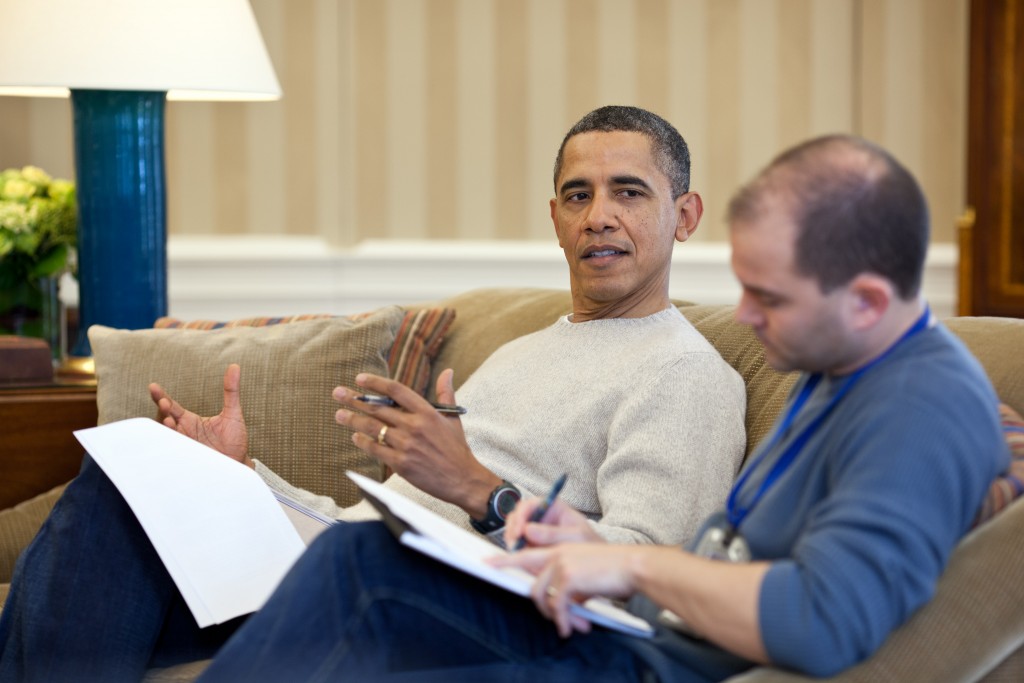
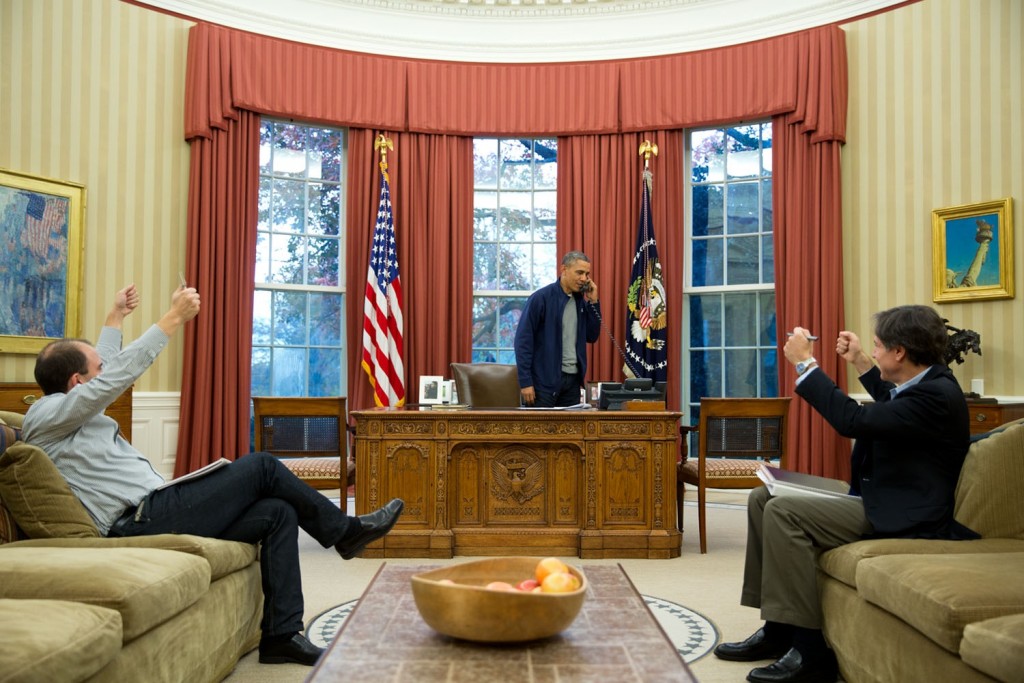
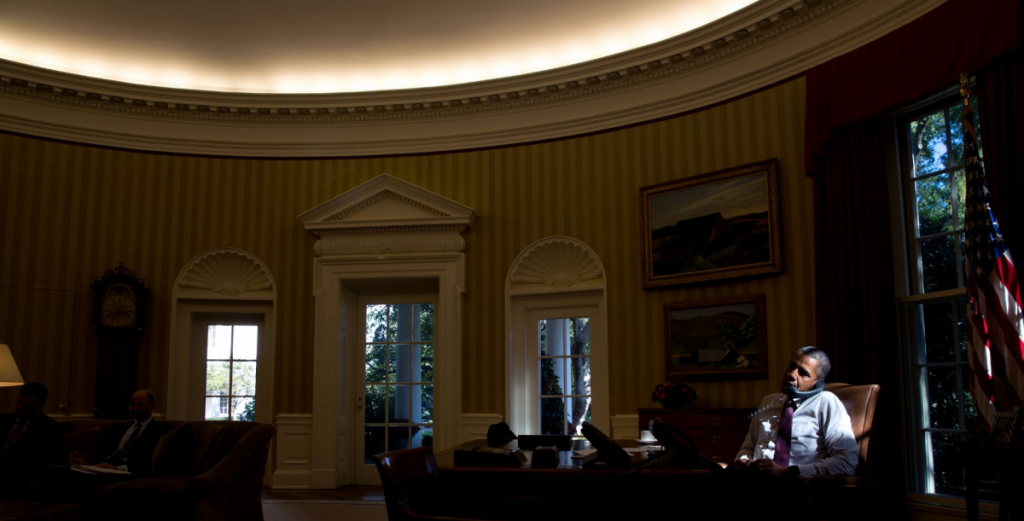
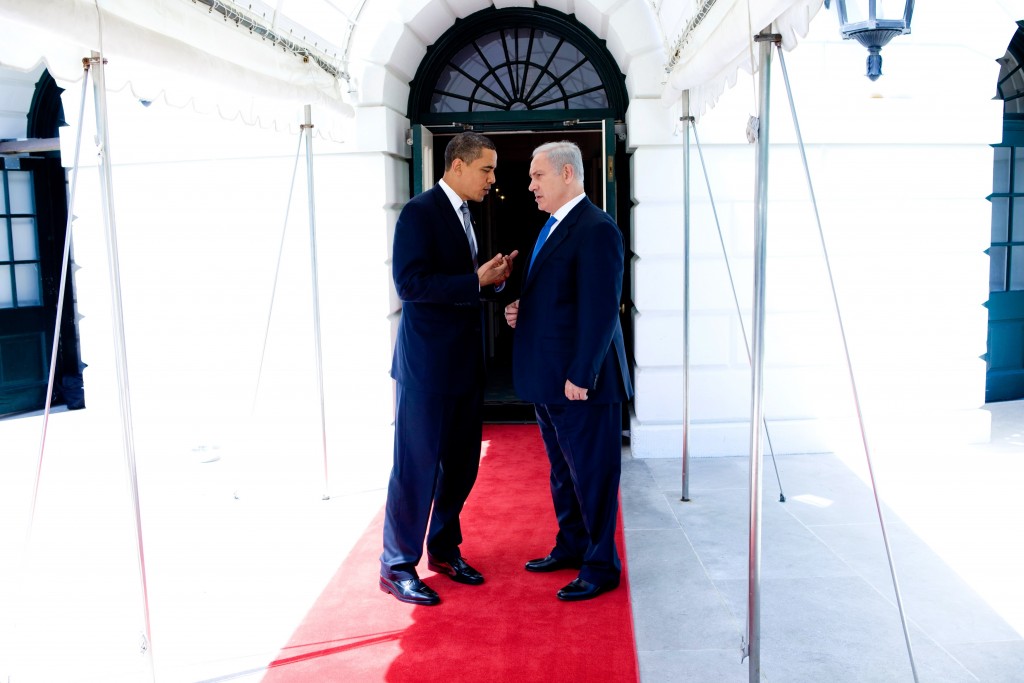
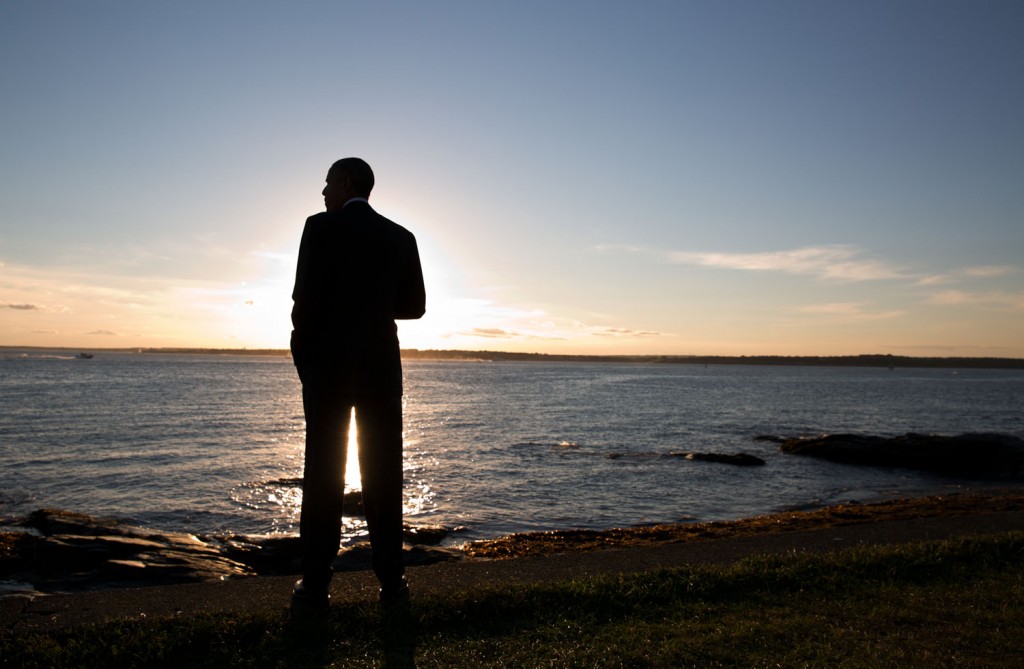
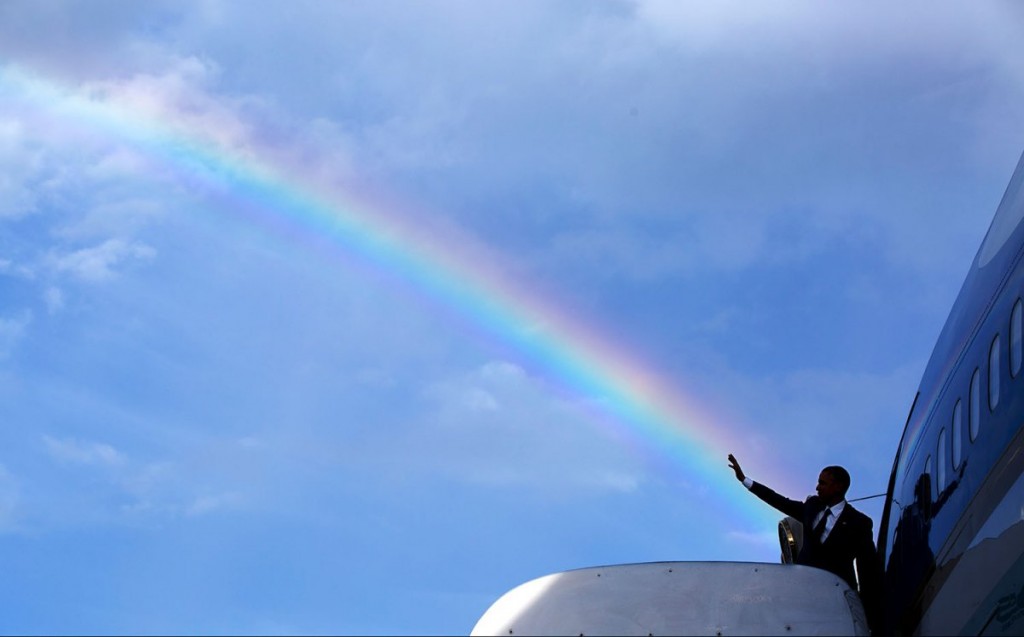
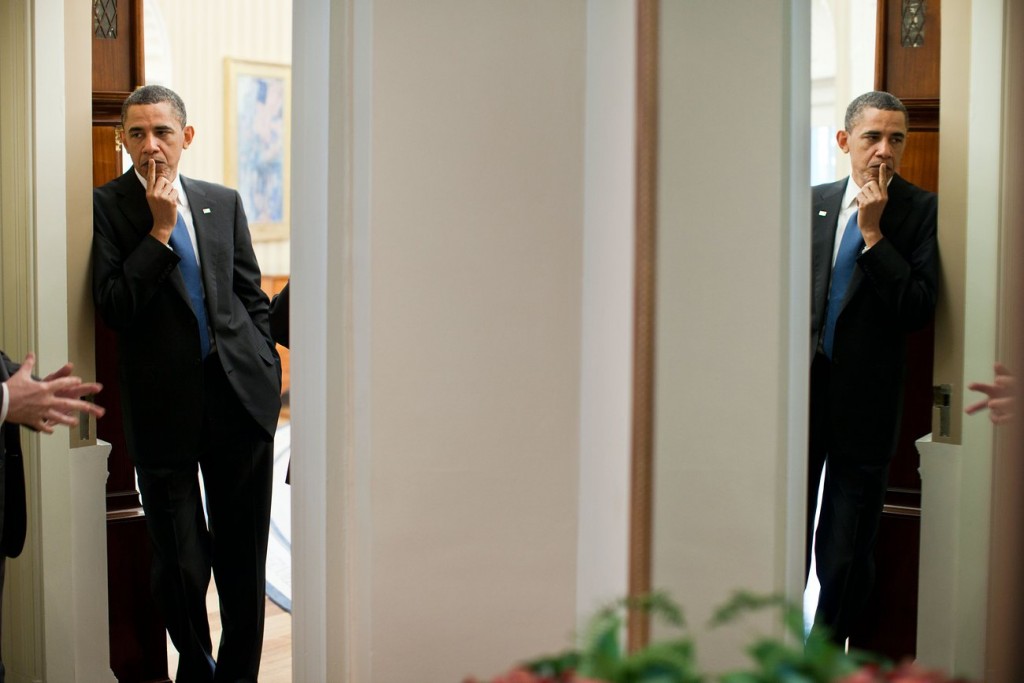
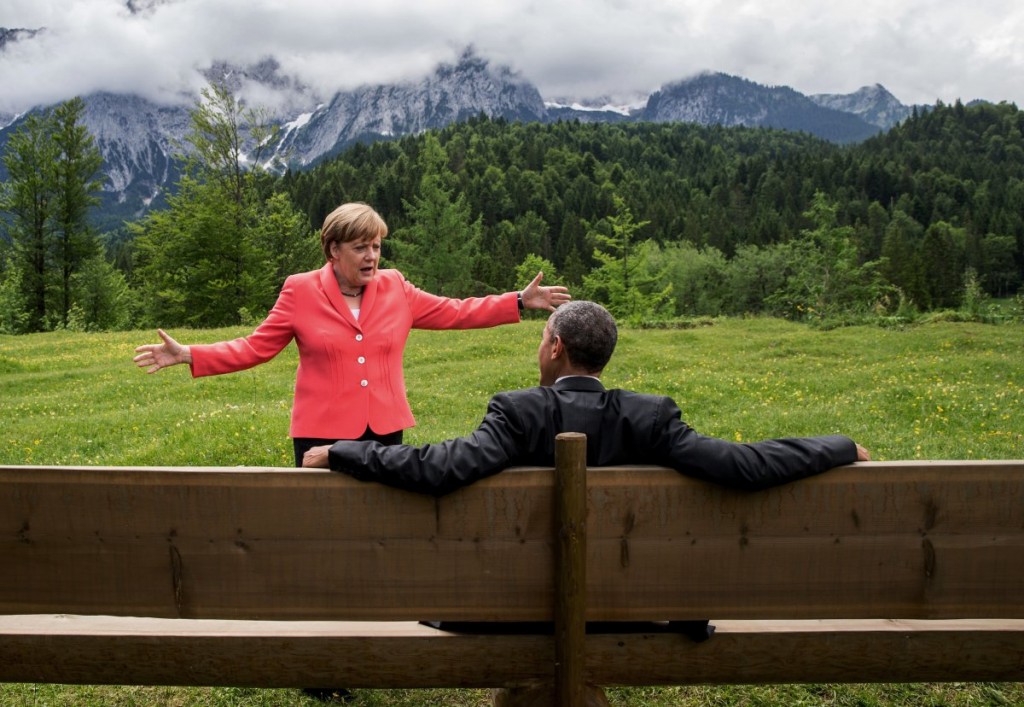
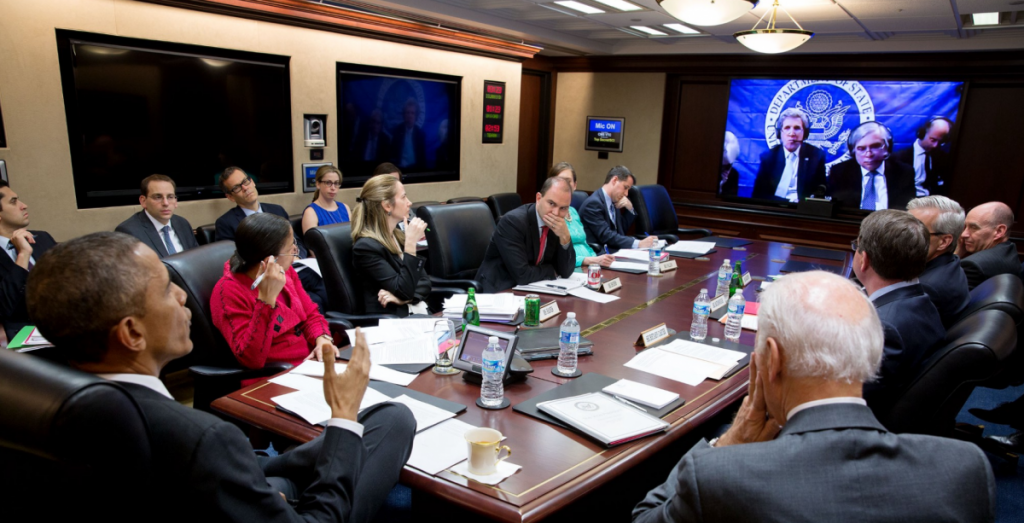

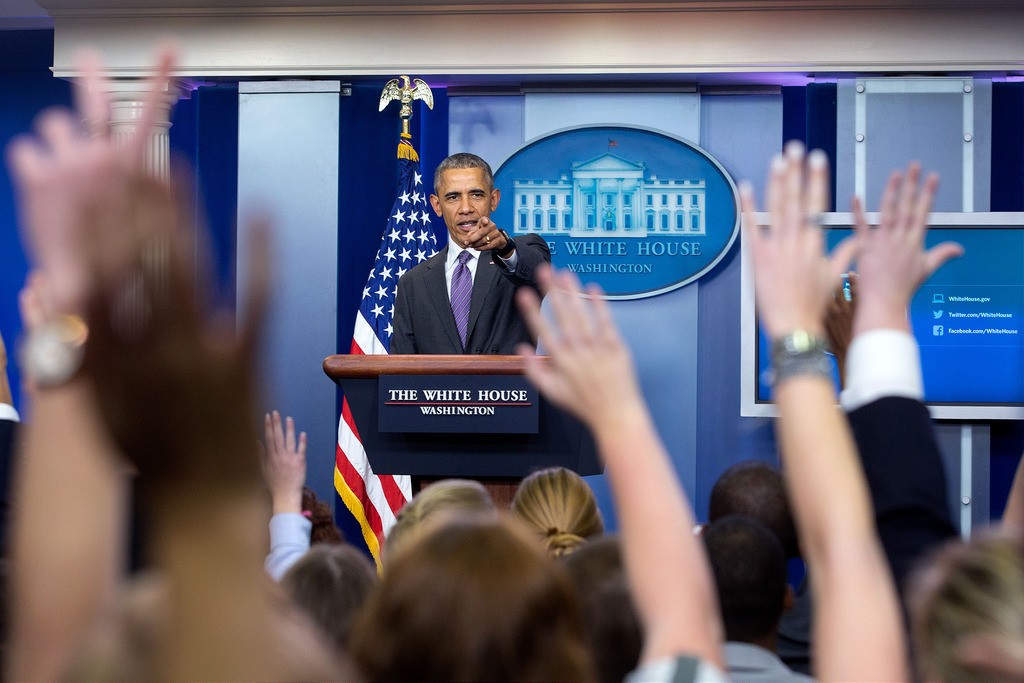
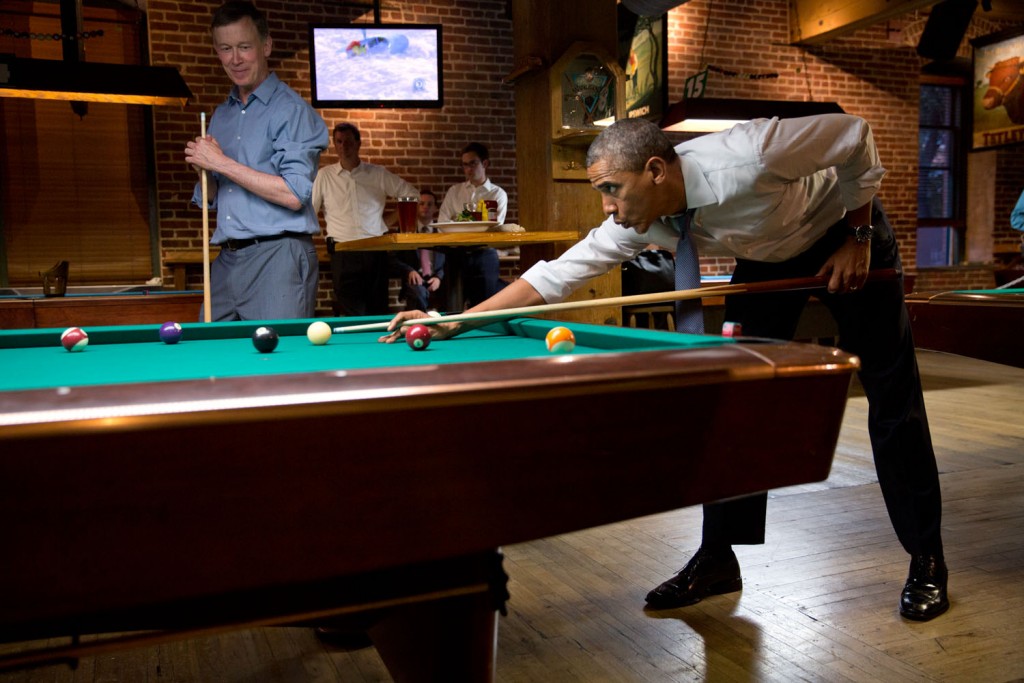
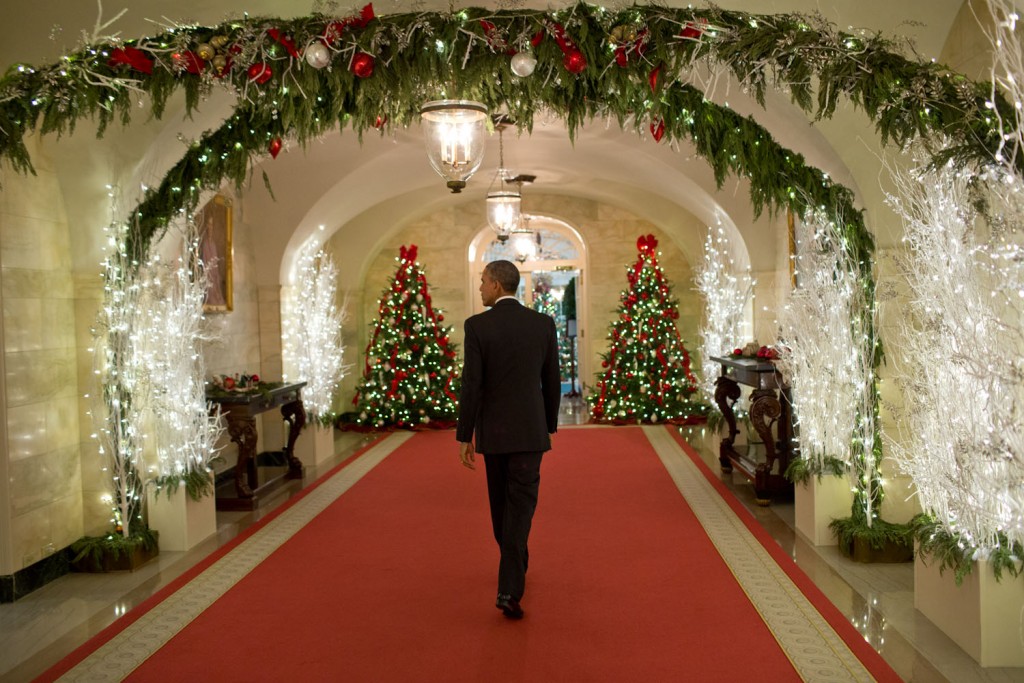
No comments:
Post a Comment